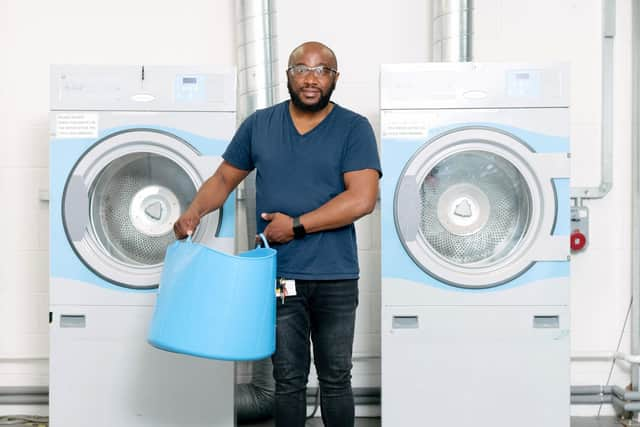Pioneering Yorkshire firm aiming to change world's washing machine usage optimistic for future despite £7m loss
Xeros, which creates technologies designed to reduce the impact of clothing on the planet, has a team of around 30 staff based at the Advanced Manufacturing Park in Rotherham after being established as a University of Leeds spinout.
The company’s areas of focus include washing machine filtration technology capable of reducing microplastics in laundry effluent by more than 90 per cent and garment processing products to reduce water usage in the creation of items like jeans. Its technology has also been involved in the launch of a new washing machine line in India where its polymer spheres cut water and chemical usage.
Advertisement
Hide AdAdvertisement
Hide AdThe company’s preliminary results for 2022 were published yesterday and showed an adjusted EBITDA loss of £7.4m compared with £6.3m in 2021. Revenue was down to £164,000 from £474,000 the year before.


Chairman Klaas de Boer told the London Stock Exchange that it had been a “challenging year” for Xeros.
He added: “We did not yet manage to deliver tangible evidence of market adoption at scale. Consequently, we had to complete a further £6.3 million equity fundraise, during the turmoil of the disastrous UK mini-budget.”
But chief executive officer Neil Austin, who joined the company in August 2022, said in his statement to the LSE that he believes the company is “on the cusp of something significant”.
Advertisement
Hide AdAdvertisement
Hide AdHe told The Yorkshire Post that the company has made tangible progress in a number of areas to put it a good position for future growth.
Garment processing work is already taking place in Bangladesh with a brand-endorsed trial with an unnamed European fashion retailer also in progress. Two commercial development agreements have been signed with European suppliers to the washing machine industry in advance of France mandating a January 2025 for a microfibre capture requirement in all washing machines – a move expected to be followed by other countries.
A trial on a commercial washing machine product with Indian Railways is also under way.
A finnCap research note said the company is expected to break even in the 2024/25 financial year and said the filtration technology market alone could be worth over £150m a year if incorporated into every new washing machine globally.
Advertisement
Hide AdAdvertisement
Hide AdMr Austin said: “These are huge industries. With just one element of the garment industry, there are 1.2 billion pairs of jeans produced every single year globally. There are 100 to 125 million washing machines produced every single year.
"When we get our technology penetrated within that, which we feel very strongly we will do, the potential for this business is huge.
"We are not a one-trick pony. We don’t just have microfibre filtration, we don't just have a solution when it comes to washing machines and we don’t just have a solution when it comes to denim processing.
"This business has three extremely valid pieces of mature technology, which have partnerships, strong IP and are in a legislative environment which will pull it along as well.
Advertisement
Hide AdAdvertisement
Hide Ad"I see no reason why this business can’t be extremely profitable for its shareholders. But it is also really important it is out there being used in industry because that is where the environmental benefits are and what really drives the people in this business.”